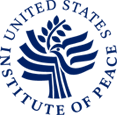Winning Essays
2008 national winning essays discussed how natural resources can be managed to build peace. See the 2008 question.
First Place: Callie Smith from Girls Preparatory School in Chatanooga,Tennessee
(Resolving Water Conflicts Through the Establishment of Water Authorities)
Second Place: Kensey Berry from Pulaski Academy in Little Rock, Arkansas
(Mine, the Gap: Recovery From and Prevention of Mineral Conflicts)
Third Place: Olga Korostelina from W.T. Woodson High School in Fairfax, Virginia
(Triple A Model as a Multifaceted Approach to Resource-Based Conflicts)
2007 national winning essay, "Reintegrating Children, Building Peace: Interaction, Education, and Youth Participation," by Wendy Cai from Corona Del Sol High School in Tempe, Arizona, discusses the reintegration of child soldiers into society, using Sierra Leone and Uganda as case studies.
2006 national winning essay, "Defusing Nuclear Tensions Through Internationally Supported Bilateral Collaborations," by Kona Shen from The Northwest School in Seattle, Washington, compares the decision of Argentina and Brazil to forego nuclear arms development with the nuclear arms race between India and Pakistan.
2005 national winning essay, "Finding Peace: Japan and Cambodia," by Jessica Perrigan from the Duchesne Academy in Omaha, Nebraska, explores how education is the key to democracy.
2004 national winning essay, "Establishing Peaceful and Stable Postwar Societies Through Effective Rebuilding Strategy," by Vivek Viswanathan from Herricks High School in New Hyde Park, New York explores the lessons of the Marshall Plan and international efforts in Somalia in an examination of the challenges of post-conflict reconstruction.
2003 national winning essay, "Kuwait and Kosovo: The Harm Principle and Humanitarian War," by Kevin Kiley from Granite Bay High School in Granite Bay, California, examines the 1990 Gulf War and NATO's intervention in Kosovo to see how they measure up against the criteria of just war.
2002 national winning essay, "Safeguarding Human Rights and Preventing Conflict through U.S. Peacekeeping," by David Epstein from Pikesville High School in Baltimore, Maryland, cites several examples of appropriate use of American power aimed at putting a stop to crimes against humanity and ending conflict.
2001 national winning essay, "Somalia and Sudan: Sovereignty and Humanitarianism," by Stefanie Nelson from Bountiful High School in Bountiful, Utah, examines the dynamics of the competing philosophies of sovereignty and humanitarianism in third-party intervention found in civil conflicts in the Sudan and Somalia.
2000 national winning essay, "Promoting Global and Regional Security in the Post-Cold War World," by Elspeth Simpson from Pulaski Academy in Little Rock, Arkansas, looks at the U.S. policies that led to intervention in Colombia and North Korea and considers the effectiveness of actions based on humanitarian assistance and national and global security.
1999 national winning essay, "Preventive Diplomacy in the Iraq-Kuwait Dispute and in the Venezuela Border Dispute," by Jean Marie Hicks of St. Thomas More High School in Rapid City, South Dakota, is not available online. Jean Marie explores the cases of preventive diplomacy seen in disputes between Iraq and Kuwait and in border disputes involving Venezuela.
1998 national winning essay, "How Should Nations be Reconciled," by Tim Shenk from Eastern Mennonite High School in Harrisonburg, Virginia, uses South Africa and Bosnia as examples to examine the manner in which war crimes should be accounted for to ensure stable and lasting peace.
1997 national winning essay, "A Just and Lasting Peace," by Joseph Bernabucci from St. Alban's School in Washington, D.C., examines the steps that can be taken to support successful implementation of a peace agreements and addresses causes of the conflicts by exploring what can be done to discourage renewed violence.
1996 national winning essay, "America and the New World Order," by Richard Lee from Irmo High School in Columbia, South Carolina, defines U.S. national security interests and gives his criteria for U.S. intervention by examining past cases of intervention.
+1.202.457.1700 (phone) - +1.202.429.6063 (fax)
www.usip.org



